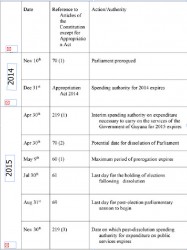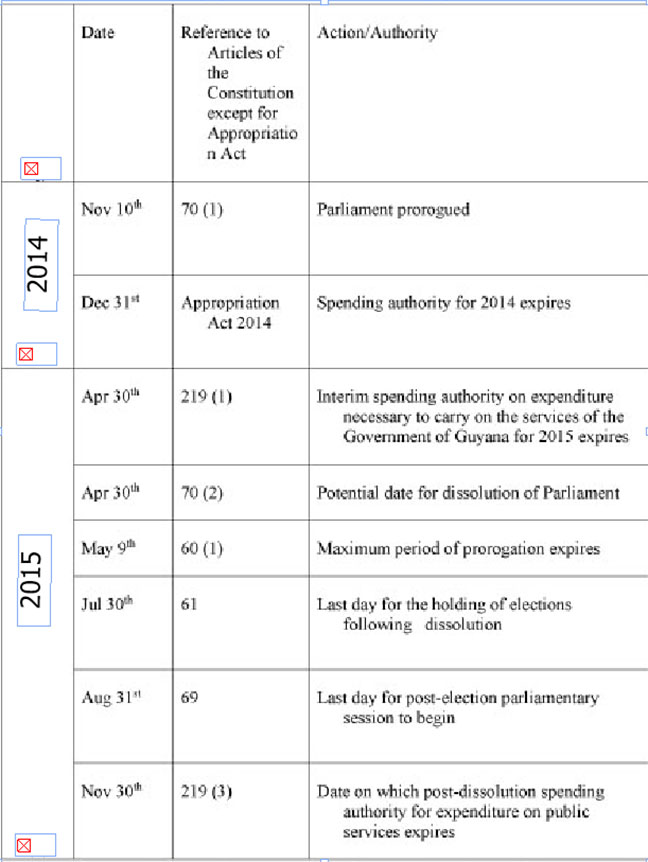Dear Editor,
One person has asked me directly, and another through the Stabroek News blog, for clarification or explanation on how I arrived at the date of November 30, 2015 to which a re-elected PPP/C could spend money without going to the National Assembly (‘Gov’t can spend up to November 30, 2015 without approval – Ram’ SN, November 13).
I set out below a Table showing the timeline based on my understanding of the Constitution of Guyana and the assumption that the PPP/C is re-elected, whether as a majority or on a plurality. It also assumes that the PPP/C will take full advantage of the opportunities offered by the increasingly exposed anti-democratic constitution.

Even while suspended, however, the opposition MPs still have their obligations to the people who voted for them and need to demonstrate increased vigilance over the executive. With the parliamentary door slammed shut in their faces, the opposition parties must now display more interest and energy in the courts than they have done in the past.
Freed from their parliamentary duties, opposition MPs have more than adequate time to read and consult on the restrictions which the constitution and the Fiscal Management and Accountability Act place on the use of the Contingencies Fund. They must therefore pursue vigorously and immediately the interpretation of the constitution on the spending which can take place and that which cannot take place during this period and be willing to go to the court, even preemptively.
They need to note the language of Article 219 (1) and 219 (3) of the constitution which limit the kind of expenditure which the executive can undertake during this suspension. For example, subsidies to GuySuCo and Guyana Power and Light Inc can hardly be considered as “expenditure necessary to carry on the services of the Government of Guyana” (219 (1)) or as “meeting expenditure on the public services” (219 (3)).
It would be a grave mistake to leave that kind of principled work to the person who now passes for an Attorney General of Guyana. Opposition MPs have to accept that their suspension poses not only the gravest challenge to the discharge of their duties to voters but also to the country and its future. They must rise to the occasion.
Yours faithfully,
Christopher Ram






